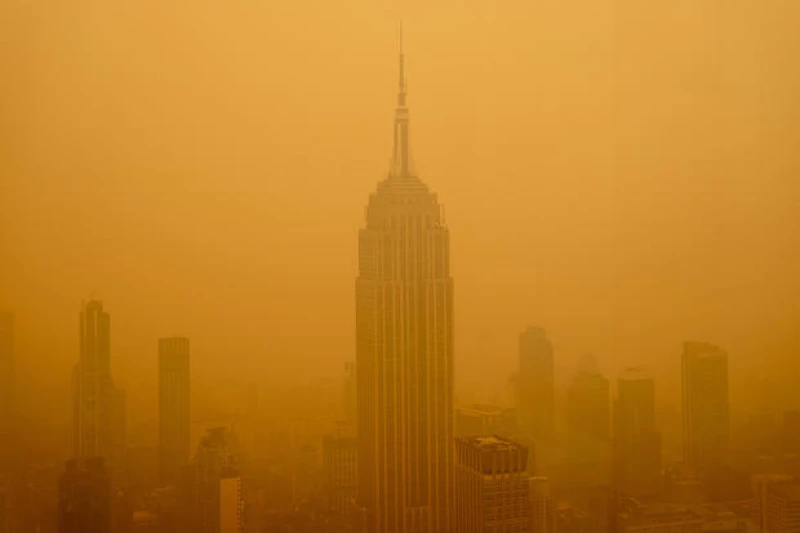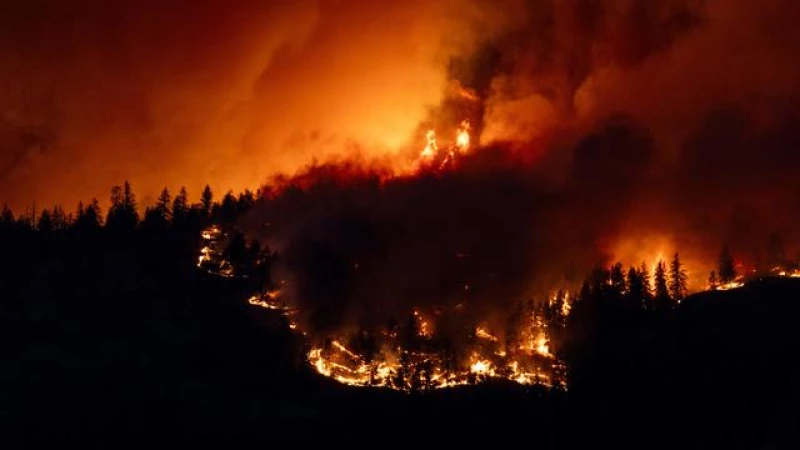Canadian officials on Wednesday warned the country could face another catastrophic wildfire season after last year's historic fires.
There were warmer-than-normal temperatures and widespread drought conditions across Canada this winter, officials disclosed. Weather outlooks indicate that Canada can expect higher-than-normal temperatures this spring and summer as well, setting the stage for wildfires.
"With the heat and dryness across the country, we can expect that the wildfire season will start sooner and end later, and potentially be more explosive," Canada Emergency Preparedness Minister Harjit Sajjan said at a press conference.
Canada's wildfire season typically runs from May through October. The country is home to about 9% of the world's forests.
Last year's wildfire season was the most destructive in recorded history, Sajjan said. More than 6,000 fires burned in Canada last summer, tearing through tens of millions of acres of land. Hundreds of thousands of Canadians evacuated from their homes as the wildfires ravaged the country.
Smoke billowed to the U.S., blanketing portions of the East Coast and Midwest. Last June, New York City's air quality became some of the worst in the world in June as Canada's wildfire smoke blew in.
Canada Braces for Severe Weather and Wildfires
In a recent report, it was revealed that in 2023, Canada experienced severe weather that resulted in over $3.1 billion in insured damages. As the country gears up for the upcoming wildfire season, the federal government is collaborating with local authorities to assess last year's events. This includes enhancing emergency preparedness plans, conducting risk assessments, and acquiring specialized firefighting equipment while training firefighters.
"While we cannot predict the exact outcome of the upcoming summer, one thing is certain - wildfires will continue to pose a significant challenge for Canada as the effects of climate change become more pronounced," stated a government official.
Furthermore, there is a growing emphasis on addressing climate change to mitigate the impact of extreme weather events. Minister of Environment and Climate Change, Steven Guilbeault, highlighted the increasing frequency of these events and their costly consequences for Canadians and the government.

Recent data indicates that climate-related impacts currently incur an average cost of $720 per Canadian household annually. This figure is projected to escalate to approximately $2,000 per year by 2050, underscoring the urgency of addressing climate change and its repercussions.
"In light of the recent devastating wildfire season of 2023, it is crucial that we enhance our preparedness for the impacts of climate change and accelerate our joint endeavors to curb the addition of carbon emissions to this pressing global issue," emphasized Guilbeault. "As we once again confront the possibility of another active wildfire season this year, it serves as a stark reminder of the imperative need for collaborative action in mitigating the risks posed by our evolving climate to ensure the safety of Canadian communities."






